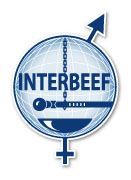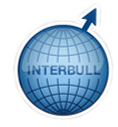
Minutes from Interbeef Technical Committee Meeting
Nantes, August 27, 2013
La Cité Nantes Events Centre
Participants
Brian Wickham (WG Chairman), Lubos Vostry, Pavel Bucek, Zdenka Vesela, Clara Diaz Martin, Eric Venot, Ross Evans, Thierry Pabiou, Anders Fogh, Mohammad Nilforooshan, João Dürr, Laurent Griffon, Peter Amer (observer), Mike Coffey, Norman Maiwashe, Ludmila Zavadilová (observer), Gerben de Jong (observer), Amandine Launay and Andrew Cromie.
1 & 2. Opening and adoption of agenda
The Interbeef Chairman, João Dürr, welcomed all the participants. The agenda was accepted with one addition to the other matters: Mohammad Nilforooshan requested space to report on the impact of the agreed publication rules on the number of animals to be published.
ADOPTED AGENDA
- Opening
- Adoption of agenda
Minutes from meeting in Aarhus – May 27, 2012 (https://wiki.interbull.org/public/IBeef_Tech_Meet_Aarhus?action=print)
- Results from the survey on “Assessment of genetic parameter estimation procedures for weaning weight and inclusion of records from crossbred animals” (IRL)
- Results from AWW variance components study (IRL)
- September 2013 AWW routine run
- Genetic parameters?
- Inclusion of new countries in AWW evaluations
- Preliminary results from the calving traits pilot run (CZE)
- Technical Committee terms of reference
- Other matters
- Recommendations to the working group
- Adjourn
3. Minutes from meeting in Aarhus
Eric Venot made the following remarks on the minutes:
- What should be done about animals that change sex or breed from one evaluation to the next?
- Explanation: each authoritative organization is responsible for the quality of the information added to the Interbeef pedigree and changes made by the authoritative organization cannot be reverted by other users.
- Should animals that are considered "invalid" by the authoritative organization be included in the evaluations?
Recommendation: the Interbull Centre will investigate which animals are in such situation and the impact of removing these animals from the evaluation.
4. Results from the survey
Ross Evans presented the summary of the answers provided by the respondents. The survey provided a valuable description of the national procedures for variance component estimation, as well as the use of crossbred data. The presentation of the results are available at Survey_slides.pdf.
5. Results from AWW variance components study
Thierry Pabiou presented the results from the study on AWW LIM variance components carried out by the ICBF team. There was not enough time to finish the analyses for CHA before the meeting. The written report is available at INTERBEEF ACROSS COUNTRY VCE LIMOUSIN v5.pdf. The technical committee discussed the results and the main comments were:
- Results are quite different between DMU and Mix99, and the MTT researchers are looking into it to see why this is the case. DMU has therefore been adopted for the study and should be the software of choice for variance components until further notice.
- Investigate if "invalid IDs" occur among common bulls
- Pruning non-informative animals can reduce the number of equations substantially
- Defining phantom groups should be considered
- Prior to bending the matrix of correlations, add the weighted average of the correlations that converged in the empty cells instead of 0.80
- Since there are so many non-estimable correlations, one possibility would be to consider all correlations as 1 (no genotype-environment interaction) for the time being and concentrate efforts on modelling the heterogeneous variance
- It is probably best to consider the maternal effects as 1 because they are even more difficult to estimate than the direct genetic effects
- In general, the technical committee considered that the study yielded consistent results and progress has been made
Recommendations for continuing the study:
- Use trios of countries including FRA as the link supplier
- Set maternal genetic effect to 1
- Prune non-informative animals
- Improve bending
- Add phantom groups
- Try to "fix" variances to the values supplied by the national centers
6. September 2013 Routine Run
Given that the research on variance components is still ongoing and the previously estimated components are not considered acceptable by the technical committee, the question posted to the group was if the September 2013 routine run for AWW should be postponed or changed into a test run. Mike Coffey and Clara Diaz reported that it has become very difficult to ensure funding to Interbeef without results being delivered to the breeders and that it would be a bad policy to cancel the routine run again. It was finally agreed that the routine run should be maintained with the parameters estimated by the ICBF team, who committed to speed up the procedures for CHA immediately following this meting.
Recommendations:
- Maintain the September 2013 rotine run, scheduled for Sep 17, 2013
- Use the same phenotypic data already used for the last test run (no new performance records should be submitted by the participating organizations)
- Pedigrees should be updated by the national centers
- Adopt the bended correlation matrices prepared by the ICBF research group
- Apply the publication criteria as approved by the WG in May 2013 to prepare the distribution files
- Services users must send an extra file with all animals with official publication status in their respective country
- Further discussion on the publication rules will take place within the next WG meeting in Prague, based on the results from the routine run
Obs. Ross Evans will contact all users to collect extra information about national variance components
7. Preliminary results from the calving traits pilot run
Pavel Bucek invited all participant to attend the Interbeef WG meeting to be held in Prague from Nov 21-22, 2013. In the sequence, Pavel presented a report on the progress made by the CZE research team on developing international genetic evaluations for calving traits. The slides presented are available at Preliminary results from calving traits.pdf. Basically the same report was also presented during the Interbull Open Session on Aug 25. The main comments from the Technical Committe were:
- Although FRA does not have a regular national genetic evaluation for stillbirth, the phenotypes exist and might be sent to CZE in the near future, depending on the available resources.
- The research should prioritize calving ease, because it tís the trait with more complete data available. Afterwards the other traits can benefit from the same framework.
- The research group from CZE should cooperate with the ICBF research team for the development of variance components procedures
8. Technical Committee terms of reference
This topic was not covered due to lack of time.
9. Other matters
Impact of the publication rules on distribution files
Mohammad Nilforooshan applied the publication rules approved by the Interbeef WG to the results of the March 2013 test run and presented a description of the impact of the different criteria in the total number of animals receiving the status of "publishable". The presentation with the figures is available at Impact of publication policy.pdf.
Recommendation:
Apply the publication rules as currently agreed.
Carcass traits research
Mike Coffey informed that the research proposal about carcass traits evaluations needs to be finalized soon in order to allow accessing research funds. ICBF and SRUC will work together in this initiative.
Having spent the available time for discussions, the chairman thanked all participants and the meeting was adjourned.
